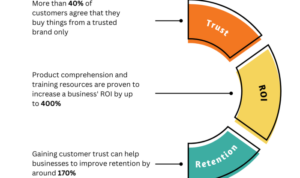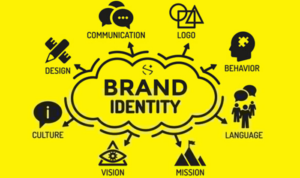Diving into Social Proof Strategies, this intro sets the stage for exploring how leveraging social proof can revolutionize your marketing efforts. From testimonials to influencer endorsements, get ready to up your game!
Introduction to Social Proof Strategies
Social proof is like the VIP pass of marketing, showing off how cool your business is by letting others do the talking. It’s all about using the power of influence to build trust and credibility with your audience. Businesses that ignore social proof are like that one kid who sits alone at lunch – not a good look.
Why is social proof so crucial for businesses, you ask? Well, imagine you’re trying to decide between two restaurants. One is empty, while the other is packed with people waiting in line. Which one would you choose? Exactly. Social proof helps customers make decisions by showing them that others have already tried and loved your product or service.
Now, let’s take a look at some examples of successful social proof strategies that have rocked the marketing world:
Customer Reviews and Testimonials
Customer reviews are like gold in the world of social proof. When potential customers see glowing reviews and testimonials from happy clients, they’re more likely to trust your business and make a purchase.
- Amazon’s product reviews section is a prime example of how customer feedback can drive sales.
- Testimonials on a company’s website can also be a powerful tool to showcase customer satisfaction.
Celebrity Endorsements
When a famous face gives your product the stamp of approval, it can do wonders for your brand’s credibility.
- Remember when Michael Jordan rocked those Air Jordans? That’s the power of a celebrity endorsement.
- Kylie Jenner promoting a skincare product on Instagram? Instant sales boost.
Types of Social Proof

Social proof comes in various forms that can influence consumer behavior in different ways. Let’s explore some of the most common types and how they are utilized by companies to build trust and credibility with their audience.
Testimonials
Testimonials are statements or feedback from satisfied customers that endorse a product or service. They can be in the form of written reviews, video testimonials, or star ratings. Testimonials serve as social proof by showcasing real experiences and opinions, helping potential customers make informed decisions based on others’ positive feedback.
Case Studies
Case studies provide in-depth analysis of a customer’s experience with a product or service. They highlight specific challenges, solutions, and outcomes, demonstrating the tangible benefits and results achieved. Companies use case studies to showcase real-life examples of success stories, which can influence potential customers by showing them the value and effectiveness of the offering.
Influencer Endorsements
Influencer endorsements involve popular individuals or celebrities promoting a product or service to their followers. Influencers can sway consumer behavior by leveraging their credibility and influence to endorse a brand or product. Their endorsement serves as a form of social proof, as followers are more likely to trust and engage with a product recommended by someone they admire.
Examples of Companies Utilizing Social Proof
- Amazon – Amazon displays customer reviews and star ratings prominently on product pages, influencing purchasing decisions based on social proof from other buyers.
- H&M – H&M collaborates with fashion influencers to showcase their clothing lines on social media, leveraging influencer endorsements to reach a wider audience and drive sales.
- Salesforce – Salesforce shares case studies highlighting successful implementations of their CRM software, demonstrating the value and impact of their solutions on real businesses.
Implementing Social Proof Strategies
When it comes to implementing social proof strategies for your business, there are a few key steps to keep in mind. From collecting customer feedback to leveraging it on your website and marketing materials, here’s how you can make the most of social proof:
Collecting Social Proof from Customers
- Encourage customers to leave reviews and testimonials on your website or social media pages.
- Offer incentives such as discounts or freebies in exchange for feedback.
- Utilize surveys and feedback forms to gather insights from customers about their experiences with your products or services.
Leveraging Social Proof on Websites and Marketing Materials, Social Proof Strategies
- Display customer testimonials prominently on your website, especially on key landing pages.
- Showcase user-generated content, such as photos or videos of happy customers using your products.
- Add trust badges, awards, or certifications to your website to build credibility and trust with potential customers.
Maximizing the Impact of Social Proof Campaigns
- Use real customer stories and case studies to provide detailed examples of the positive impact your products or services have had.
- Create a sense of urgency by highlighting limited-time offers or showcasing popular products that are selling out fast.
- Encourage social sharing by making it easy for customers to share their positive experiences with your brand on social media.
Overcoming Challenges with Social Proof: Social Proof Strategies

When it comes to implementing social proof strategies, businesses often face various challenges that can hinder their success. However, with the right approach and solutions, these challenges can be overcome to effectively leverage the power of social proof.
Building Credibility and Trust
In order to establish credibility and trust through social proof, businesses need to ensure that the testimonials, reviews, and endorsements they showcase are authentic and genuine. This can be achieved by:
- Collecting feedback from real customers and clients who have had positive experiences with the product or service.
- Avoiding fake reviews or testimonials that can easily be detected by consumers and damage the brand’s reputation.
- Being transparent about the source of the social proof and providing context to help customers understand its relevance.
Managing Negative Social Proof
Dealing with negative social proof, such as bad reviews or unfavorable testimonials, can be challenging for businesses. To overcome this, they can:
- Respond promptly and professionally to negative feedback, demonstrating a willingness to address and resolve customer concerns.
- Showcase how the business has improved in response to previous criticism, highlighting the commitment to customer satisfaction and continuous improvement.
- Encourage satisfied customers to share their positive experiences to counterbalance any negative social proof and showcase the overall positive reputation of the brand.
Ensuring Consistency and Relevance
Maintaining consistency and relevance in social proof can be a challenge, especially as trends and consumer preferences evolve. To address this, businesses should:
- Regularly update and refresh social proof content to reflect current customer sentiments and preferences.
- Tailor social proof to specific target audiences and segments, ensuring that the testimonials and reviews resonate with their unique needs and preferences.
- Monitor the effectiveness of social proof strategies through analytics and feedback, making adjustments as needed to optimize results and engagement.












